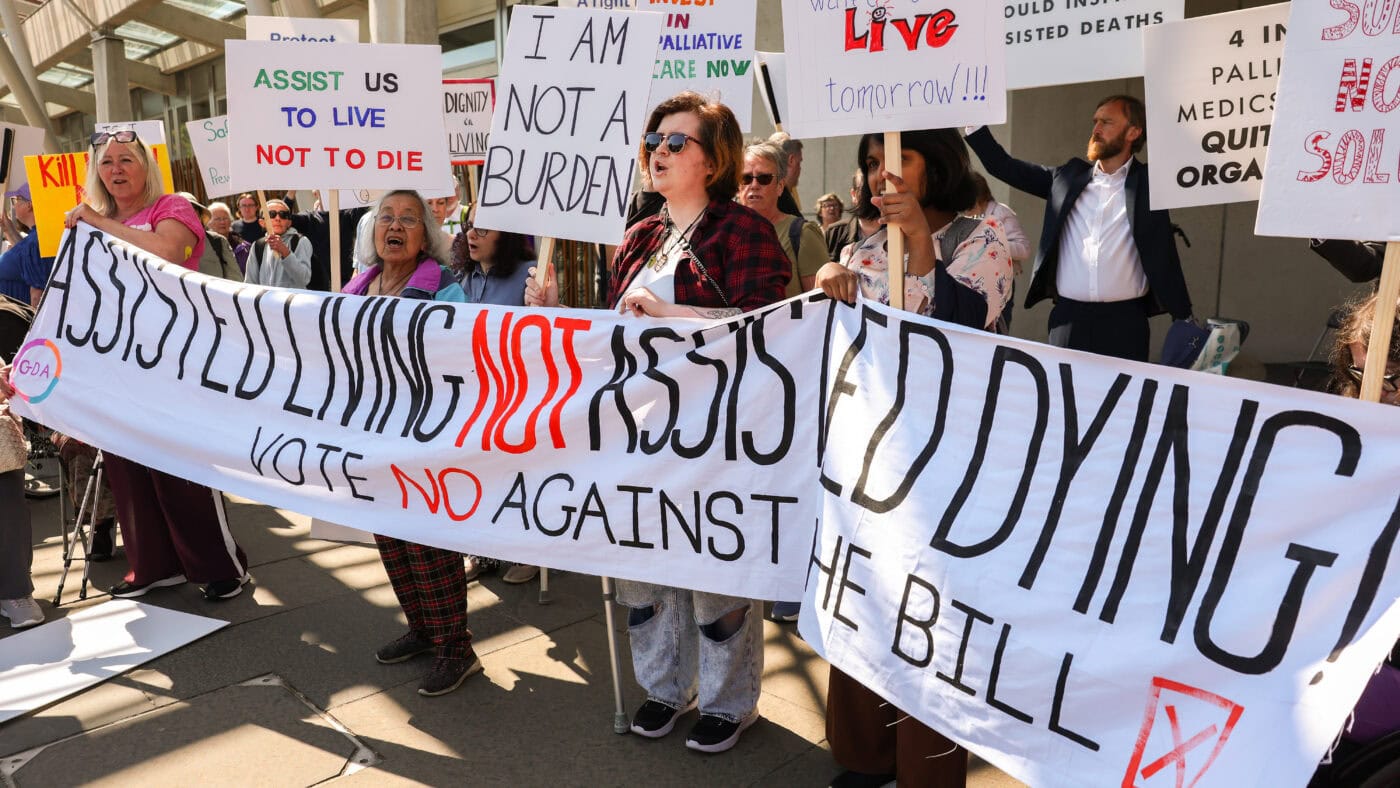On Friday, MPs will not vote on the principle of assisted dying, but whether they want this dangerous Bill, following this process, to become law.
A Bill so flawed that the Royal College of Physicians and Royal College of Psychiatrists – neutral for six years – were forced to oppose it because major deficiencies remain.
A Bill built on shaky foundations, with policy shaped by a single MP and a prominent, well-funded lobby group.
For the Abortion Act, the Labour Government appointed the president of the Royal College of Obstetricians and Gynaecologists, Sir John Peel, to chair a medical advisory committee that reported in favour of passing the Bill. For the Human Embryology and Fertilisation Act there was the Warnock Commission.
Here, there has been no consultation, no formal engagement with those affected, no testing of provisions with professional bodies. Instead, over 400 written submissions sit largely unread, and a few dozen oral evidence sessions where the witnesses chosen were overwhelmingly those who favoured assisted dying.
Not only does this undermine the legitimacy of the decisions taken, it deprives MPs of certainty that the policy is as good as it needs to be.
Especially given that, as Gordon Brown put it, the Bill will ‘privilege the legal right to assisted dying without guaranteeing anything approaching an equivalent right to high-quality palliative care for those close to death’.
MPs must ask whether they – as advocates for this change – have done enough to protect the vulnerable and ensure this is a free choice, not a default for those with no other options.
And they must be certain. If they say yes, the Bill will become law. The session’s length will ensure safe passage through the Lords, and MPs will get no further chance to amend or vote on the final version.
No MP can claim ignorance of the problems. They can only say they chose to ignore the warnings, favouring a high-gloss, celebrity-driven campaign and those for whom this will be a free choice, over those marginalised and vulnerable who will feel compelled to end their lives in this way.
If the new clause 16 is defeated on Friday, they will know that the Bill allows the state to help end the lives of those motivated not by their terminal illness, but by depression or mental illness, feeling that they are a burden, their inability to access health or social care or because they are in financial distress.
From last week’s votes, they will know any doctor may raise ending a patient’s life, regardless of the patient’s vulnerability. That doctors and panels need only be ‘51% sure’ the patient wasn’t coerced and meets the criteria.
They’ll know the High Court oversight has been stripped out and replaced by administrative panels with no power to call witnesses or take evidence on oath.
They’ll know they are signing off government-backed education campaigns before the 2029 election promoting assisted dying. From leaflets in surgeries to posters in hospitals to targeted mail, the campaign outlined in the impact assessment will address ‘all professionals… family, friends, unpaid carers and other support organisations and charities’.
They’ll know a vote for this Bill is to give any government, now and in the future, the power to change any aspect of the NHS – including its founding principles and the Government’s duty to promote a comprehensive health service – with MPs having little further say.
They’ll confirm they are content for private, for-profit contractors to be used to end lives, and that there is no limit to the profit that can be made, despite promises of a cap to prevent the commodification of a life-ending service.
They’ll know they are leaving hospices and care homes open to funding cuts and legal action if they decline to participate.
And they’ll be saying yes to experimental drug combinations with no minimum safety requirements nor state duty to minimise unintended suffering, distress or prolonged deaths from the lethal drugs.
If all of this is acceptable, we will know that they chose to harden their hearts and say with assisted dying advocate Henry Marsh, that if a few patients get bullied into it, that might just be ‘a price worth paying’ to let others end their lives with dignity.
And they’ll need to be honest: the price will not be paid by the affluent, usually white, middle-class advocates of this change, but by the poor, disabled, marginalised and abused.
If MPs are gambling – hoping others will have the courage to say no where they have not – or simply voting with their friends, then they need to consider how they’ll feel in years to come when the scandals emerge of how the safeguards failed. As they have so often in our NHS.
MPs must reject this Bill. Not because they oppose assisted dying, but because it risks far more harm than good. Something this significant needs firmer foundations.
Click here to subscribe to our daily briefing – the best pieces from CapX and across the web.
CapX depends on the generosity of its readers. If you value what we do, please consider making a donation.


